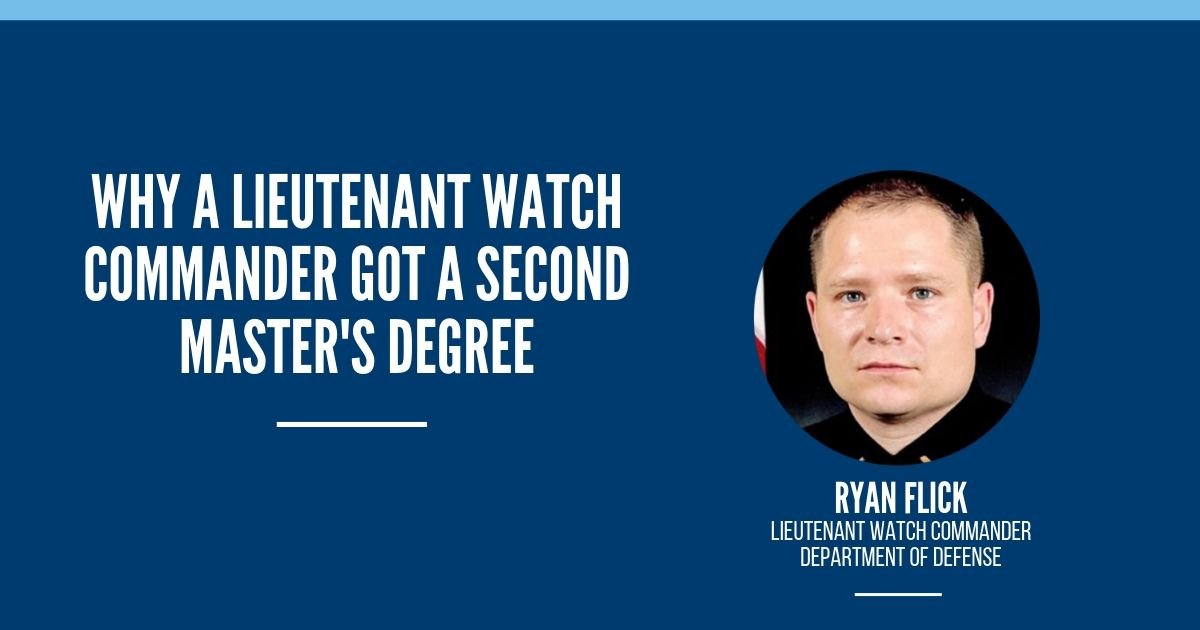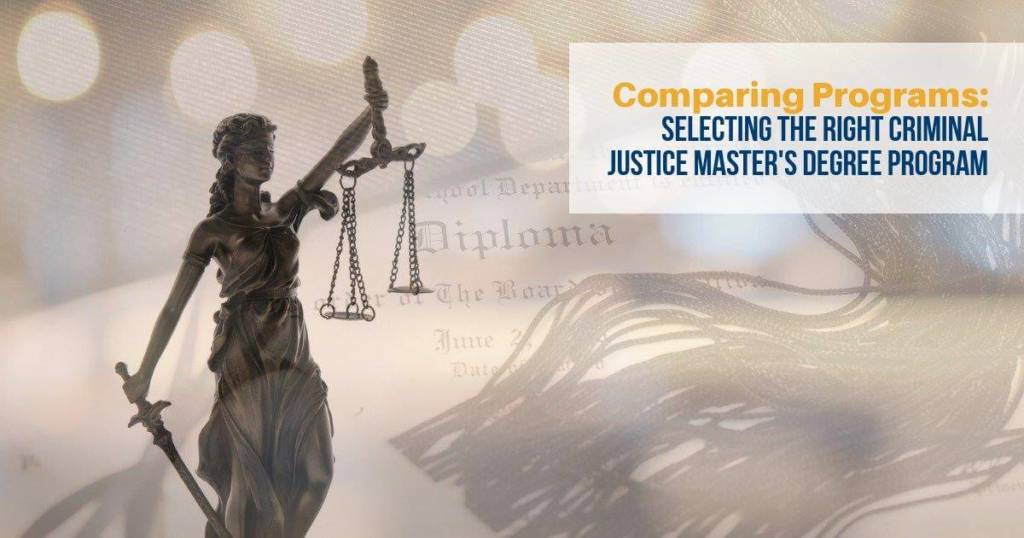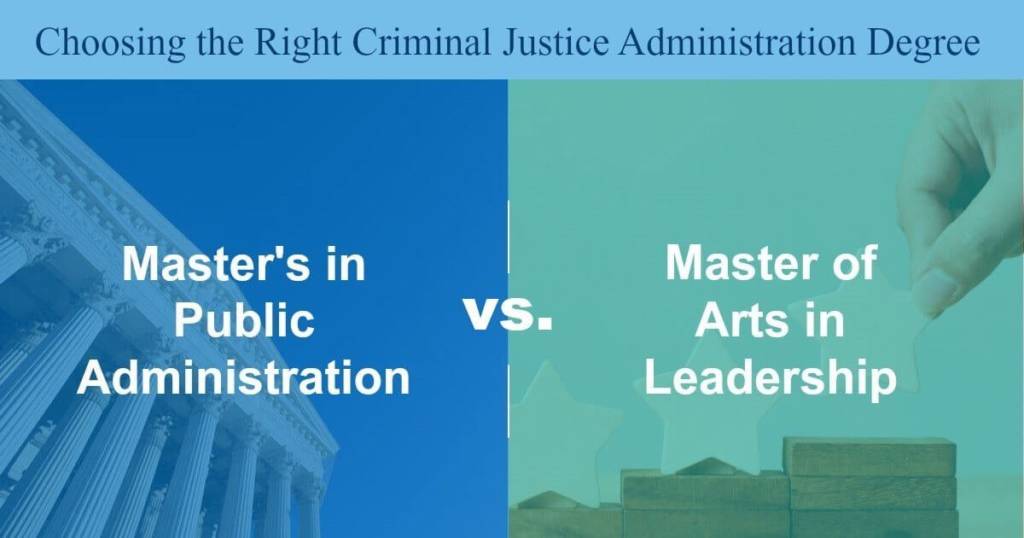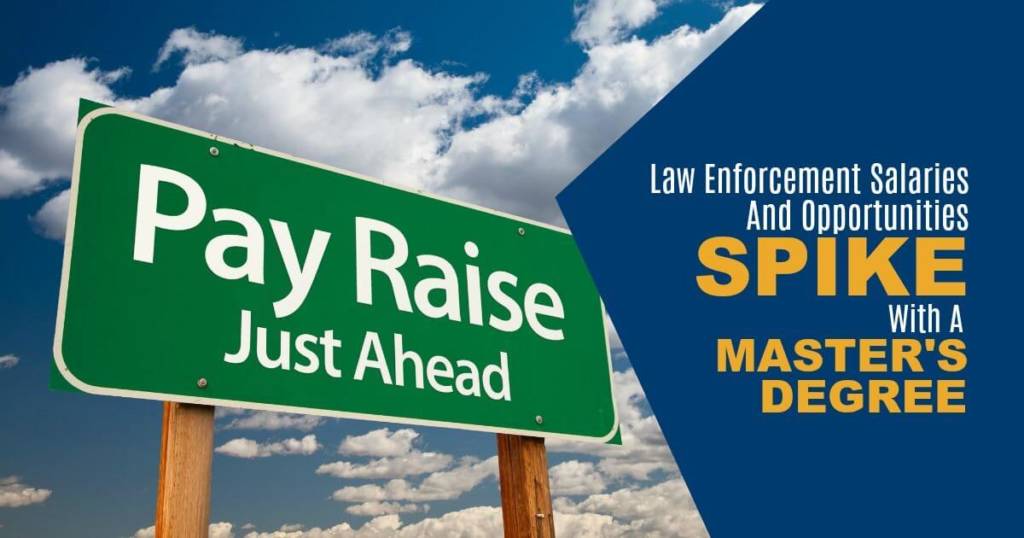Ryan Flick is a Lieutenant Watch Commander at the Department of Defense in Oceanside, California and a graduate of the Master of Science in Law Enforcement and Public Safety program at University of San Diego. Ryan worked as a deputy sheriff and a patrol officer and served in the U.S. Air Force for four years prior to entering civilian law enforcement.
How did you get into law enforcement?
I always wanted to be a cop. My dad was a corrections officer in a Pennsylvania prison and I grew up surrounded by police officers. I joined the Air Force, did security forces for four years and then got out to pursue my civilian law enforcement career.
Why did you decide to pursue your Master’s in Law Enforcement and Public Safety Leadership, and why did you choose University of San Diego?
This is my second master’s degree. My first degree is in human behavior. The Chief of Police at my station is currently in the USD MS in Law Enforcement degree program. He was the one who originally brought it to my attention. However, since I already have a master’s degree, I wasn’t initially interested. Then one day I got an email from police.com about USD’s program and I started looking into it. The program curriculum and some of the classes really sparked my interest.
My goal is to become the Assistant Operations Officer (the civilian counterpart to the operations officer) in my current department. After looking into the classes that were a part of USD’s program I realized that this degree would prepare me to pursue the Assistant Operations Officer position and give me the skills I would need to be successful once I was in the position.
What do you like best about the program so far? Is there anything you would change?
I like this program at USD a lot better than the last master’s degree program I completed. I like how you get seven weeks for one class and then move into the next class. It gives you more time to direct all your focus and attention on one subject and allows you to better prepare for the class.
I am currently taking my fourth class at USD. I really like that all the content is current. For example, we are diving into the hot issues, like body cameras and drones. There is a huge focus on relevant and timely issues that are affecting law enforcement today, and that really differentiates this program from many other criminal justice programs.
I also like that the class is mostly composed of high-ranking law enforcement officials. Their feedback in the course is just exceptional. The stuff that you can get from their experience is tremendous – you don’t get that in normal classes.
I did my undergraduate studies in criminal justice. If there were other cops in the class it was your basic three to four years experience. You didn’t get the depth of experience like you get in the master’s degree program at USD. Just listening to other student’s experiences –guys with 20 to 25 years in the field –is fascinating.
How do you feel about the online component?
I like the fact that the program is 100% online. I have three kids and commute an hour to work every day, so I don’t have a ton of free time. I did much of my undergraduate studies and my first master’s degree online. The freedom the online format offers really appeals to me.
How have you handled balancing school with work?
It’s all about discipline. You have to make the time. Luckily for me, I work a rotating schedule. My kids are in daycare right now so I can hammer out a lot of work on my day off. I try to get some work done while they are awake, and as soon as they go to bed I hammer out more.
What skills do you think you will develop as a result of this program and how will those skills help you in the field?
This program helps me to open my mind to different approaches to dealing with personnel. The project we have to do for the end of the course is focused on community engagement. It is really making me think about training and education and how I can improve that training for officers and better serve the public. This education is helping me to imagine alternative avenues and new approaches to making the place I work better.
What advice would you give to someone considering a Master’s Degree in Law Enforcement?
I would recommend USD’s MS in Law Enforcement and Public Safety Leadership degree over a lot a lot of other conventional criminal justice or MBA programs. If you are considering a master’s degree you should think about what program is the best fit for you.
For me it was the leadership classes that really stuck out. I enjoy learning more about different leadership philosophies and am interested in learning how to be a better manager for my department. The budgeting class was another major draw. I know nothing about budgeting but I think it will be an excellent skill to help me lay a foundation for the Assistant Operations Officer position I hope to get.
University of San Diego accepts students on a rolling basis in the Fall, Spring, and Summer for admission into the 100% online MS in Law Enforcement and Public Safety Leadership degree program. If you are interested in becoming a law enforcement leader or advancing your career in public safety, consider enrolling in a law enforcement degree program. To learn more about your options speak with a USD admissions advisor today.




